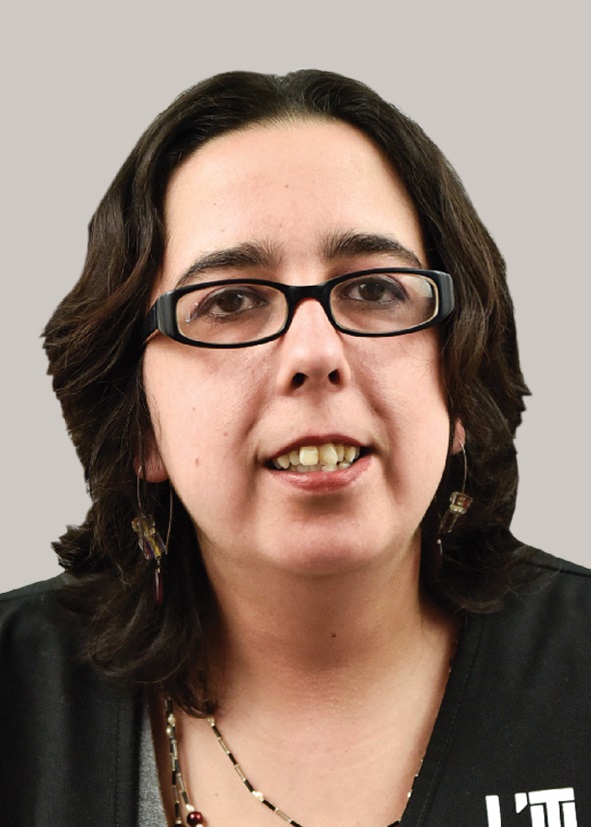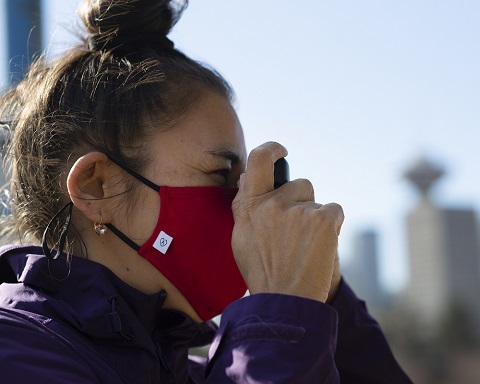By Isabelle Raymond, L’Itinéraire vendor
At a very young age, I learned to accept differences in others. When I was in primary school, ours was right next to one where kids with special needs went. We would see them when they were outside – and they would watch us as well. Some of my classmates would make fun of them just for kicks.
I was only six-years old, but that didn’t hold me back from telling tell my classmates to cut it out. I explained to them that it wasn’t these kids’ fault for being like that. They were born that way and anyone in their own families could have been like them. I found it sad that these special needs kids didn’t even realise that a handful of my classmates were laughing at them. Some even laughed along with them. They couldn’t understand the meanness that they were being subjected to.
At that time, I didn’t know that a small, fragile being in need of protection would come into my world two years later.
My dear little sister
Erika was born with several health issues. She had to be tube-fed through the nose for a few years before getting a gastrostomy [an operation during which a feeding device inserted through the abdomen]. She had to be given an injection – which my mother administrated to her – six days a week, because she didn’t produce enough growth hormones. Later on, she was diagnosed with an intellectual deficiency. It hurt me to see her sick, but her intellectual deficiency didn’t bother me.
We didn’t attend the same school: she went to a specialised one for kids with special needs. We did, however, both go to La Maison des Enfants (The Children’s’ House) – a place where we could have fun and relax. We had access to many volunteer community workers who were there to listen to us. One day, a kid shoved my sister and she fell down, so I pushed that boy so hard that he slammed into the wall. One of the adults told me that even though what he did was wrong, there were other solutions than violence. So we sat down with him to talk about my sister’s condition and her operation. The boy apologized. From that day on, every time he saw my sister, he would take her by the hand and they would play together. That’s why it’s so important that adults step in when intimidation and bullying is taking place.

All grown up, but still like a teenager
Now that my sister is an adult, she can defend herself when someone insults her. She’s pretty outspoken and quick to respond. Since she’s not autonomous enough to live in an apartment on her own, my mom takes care of her. It’s not always easy. It’s like she’s in teenager mode, even though she’s 25 years-old. That doesn’t stop her from having a big heart and being very sensitive to others. She attends Centre Champagnat, an educational center with services for special-needs adults and she also cooks meals at the cafeteria. Erika loves the theater. She plays in a troupe called La Gang à Rambrou. I have seen their shows and am impressed by their talent, despite their physical, intellectual and sensory handicaps.
The respite center
For many years, I offered my services in a respite center for adults with intellectual disabilities. Among them was a man who didn’t speak at all. It wasn’t always easy to make myself understood, but, with a lot of attention and patience, I managed to communicate with him. I was really attached to these people. One of the residents, with whom I’d often chat, loved to talk politics. During the 2012 student strikes in Québec, she asked me: “That education minister… did she ever go to school herself?” I laughed so much! I will never forget those people.
For me, those with intellectual deficiencies are people just like us. They have their dreams, their own favourite activities and are very affectionate. My sister dreams of being accepted into an advanced theater program for intellectually handicapped adults called Les Muses. I really hope she gets in. I have seen her act and she’s very gifted!




















